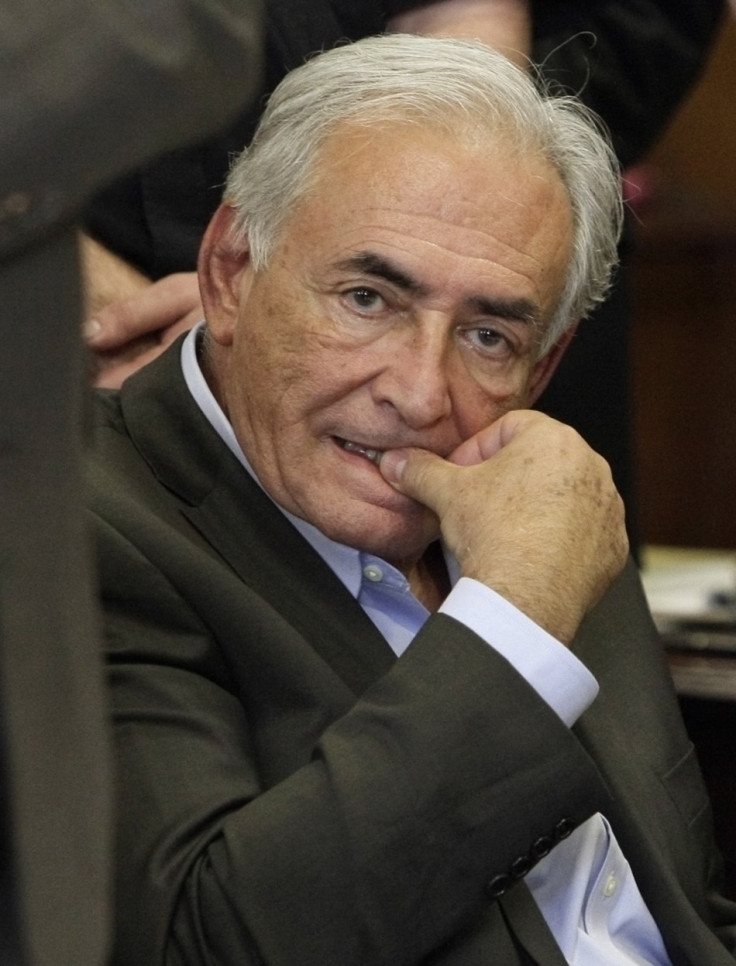Dominique Strauss-Kahn trial near to "collapse"

The prosecution case against Dominique Strauss-Kahn, the former head of the International Monetary Fund and French presidential hopeful accused of sexually assaulting a hotel maid, is close to collapse, a report in the New York Times has claimed.
The newspaper reports allegations that significant problems have emerged with the case against the former IMF boss, as the credibility of the maid that accused him is now put into question, which could see the conditions of his house arrest in New York being relaxed with immediate effect.
Based on interviews with two unnamed law enforcement officers, it says that "major holes" in the case will be admitted to a federal criminal court in Manhattan as early as Friday. New York Police Department had no comment last night.
The New York Times reports that according to its sources, the witness testimonies about herself and what she says happened to her in Strauss-Kahn's room at the Sofitel hotel in Manhattan on 14 May are not consistent, which would have led the prosecutors to seriously question the woman's credibility.
Reports also cite an official who is familiar with the case saying the issue was not necessarily about the rape accusation itself, but rather questions surrounding the alleged victim's background that could damage her credibility on the witness stand.
Strauss-Kahn has vehemently denied the accusations of rape and his lawyers have suggested that they had evidence calling into question the veracity of the housekeeper's account, but until now details about the nature of the evidences have remained vague.
Lawyers for the maid - who is not being named - were unavailable for comment last night.
She has already testified before a grand jury about the charges in New York and convinced them of the merits of her case.
When stories first emerged that Strauss-Kahn's lawyers intended to argue the woman had consensual sex with Strauss-Kahn, her former lawyer Jeffrey Shapiro said: "There was nothing about any aspect of this encounter between this young woman and the defendant which was remotely consensual or could be construed as consensual, either physical contact or sexual contact."
Strauss-Kahn has not disputed having a sexual encounter with the women, but always insisted it was consensual and the New york newspaper now says that police tape recorded a telephone conversation between the woman and a man in prison made on the day of the alleged rape in which the woman talked about the possible financial benefits that could come to her as a result of pursuing charges against Strauss-Kahn.
The New York Times also reports the investigation has also found deposits made into her bank account totalling $100,000 over the last two years, some of which came from the man, a convicted drug dealer.
If the case against Strauss-Kahn does collapse, it is likely to raise questions about what has happened to him and his future prospects. Strauss-Kahn was arrested days before he was expected to announce his bid for the French Presidential elections in 2012. The ex-IMF boss was a favourite in the run and the only opposition political figure thought to be capable of dethroning the current president.
If the trial does collapse, conspiracy theories will also run high as when the allegations of a rape first surfaced, polls showed that 60% of French voters thought it was a political conspiracy against him.
Legal experts have questioned the women credibility for weeks, especially after her original lawyer, Jeffrey Shapiro, and renowned civil rights lawyer, Norman Siegel, decided to stop working with her and have since then repeatedly declined to comment about the background to the decisions.
Harvard law professor Alan Dershowitz told Newsweek earlier this month that he believed the woman's lawyers were working with Strauss-Kahn's lawyers and looking to broker a deal.
Dershowitz said: "Clearly the defendant wants to avoid trial and wants to see if he can work out a deal that's acceptable to him. And my sense is that the victim would like a big payday. Why does she want to make a deal now? Why not wait until the conviction, and then sue? [Because] the defendant doesn't have much money. All the money is his wife's money. And if you win a suit-let's assume she wins a $10m judgment against him. She's not going to collect it. He'll go bankrupt. Whereas if she settles the case, the wife pays up. So the difference is between getting, say, a million right now from the wife, or $10m from the husband which the lawyer has to spend the rest of his life chasing."
French politicians form the socialist party welcomed the news this morning.
"This is like a thunderbolt," said Lionel Jospin, a former Socialist prime minister who is close to Mr. Strauss-Kahn.
"I am a happy man, happy for him and for our country," Jack Lang, a former Socialist culture minister who has ardently supported Mr. Strauss-Kahn's since the accusations emerged, said on French television. "You can't play with the honor and dignity of someone. His life was temporarily broken, his honor put into question."
Jean Marie Le Guen, a socialist parliamentarian, said: "This is a very emotional and joyful moment. It's the end of a nightmare. The American justice system must be prepared to rehabilitate" the reputation of Mr. Strauss-Kahn.
"I think Sarkozy and his friends are going to have a very unpleasant morning," said Claude Bartolone, a Socialist deputy.
Could Strauss-Kahn make a political come back and run against his arch rival Sarkozy? Well, reports that the trial is near to collapse are still rumours and for now, Strauss-Kahn is not yet a free man
© Copyright IBTimes 2025. All rights reserved.





















